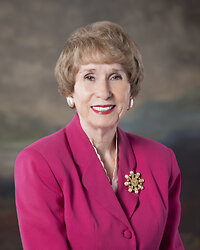Jonathan Kestenbaum tells a story about a couple who had recently moved into a new neighborhood. The first day in their new home, while eating breakfast in front of a picture window, they noticed that their next-door neighbor had her clothes hanging on the clothesline. Both of their yards were quite small, so they felt like they were on top of each other.
"Look at our neighbor's clothes," the wife said in astonishment. "They are dirty. Why would anyone hang dirty clothes on the clothesline?"
"Well, maybe their washing machine is not working properly," the husband replied, "or perhaps she is using the wrong laundry detergent."
They had the same conversation for the next several mornings. "Look!" the wife would exclaim. "She is hanging dirty clothes on her clothesline again! Unbelievable!"
Then one day, while they were eating breakfast, the wife looked out the window, and to her amazement, the neighbor's clothes were clean! "Look!" she said. "She is hanging up clean clothes today!"
"She's been hanging up clean clothes all along," the husband said. "The difference today is that I got up early this morning and cleaned our windows."
This story brings to mind a saying from the Talmud: "We do not see people as they are but as we are." Another Talmudic passage states, "Judging a person does not define who they are; it defines who we are."
The above story illustrates a truth: we often make judgments about people based not on facts but on what we see-and that is often influenced by half-truths or a lack of information. The window through which we see others may also be distorted by a desire to make ourselves feel better.
Lumping people into a group with a particular label can also cloud our perception. If we have formed beliefs about one specific group of people, we will look for proof to support those beliefs, and usually, we will see what we expect to see.
Deciding who a person is based on one action can also dirty the window through which we see them. Have you ever had a minor car accident and had others label you as an unsafe driver? We often do that to others.
We need to clean our windows of judgments by learning the other person's story. I have found that after hearing the story of someone who irritates me, I am more tolerant and compassionate,
It is true when we judge another person, we are highlighting their negative qualities. Instead of criticizing, it would be to our advantage to try seeing their positive attributes and what they are doing right.
It is true when we judge another person, we are highlighting their negative qualities. Instead of criticizing, it would be to our advantage to try seeing their positive attributes and what they are doing right.
Another suggestion is to look at what is going on within ourselves and ask, "Why does this bother me so much?" Often the things we don't like about other people are reflections of our own issues or insecurities.

Dr. William E. Austin is a licensed psychotherapist and holds a Doctor of Divinity degree. He is a therapist with Tidewater Pastoral Counseling Services . He is well known for his warmth and sense of humor. His book, Creating Our Safe Place - Articles on Healthy Relationships, can be purchased through www.amazon.com.
Tidewater Pastoral Counseling: 623-2700
CURRENT COLUMNS
Relationships 
Creating Your Own Union Cityby Dr. Bill AustinChildren First 
Safety Firstby Becky AdamsOn The Front Porch With You 
Tell Me Your Storyby Rob Lauer

